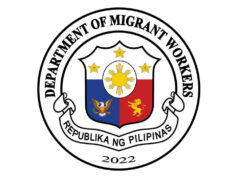Senate committees set to deliberate bill formally identifying PHL’s maritime zones

SENATE committees will soon deliberate on a bill formally identifying the country’s maritime zones, said a Senator, following Chinese justification of its attack on Philippine supply ships and its demand to remove a grounded Philippine Navy ship in Ayungin Shoal.
Senator Aquilino Martin L. Pimentel III, who chairs the Senate Foreign Affairs committee, and Senator Panfilo M. Lacson, who chairs the Senate National Defense committee, told Senate President Vicente C. Sotto III that a schedule has been set to tackle Senate Bill 2289.
If enacted, a maritime zone map similar to China’s so-called nine-dash-line, which it has been using in defense of its claims of about 85% of the South China Sea, will be created.
Mr. Sotto, who is running for Vice-President in next year’s elections, said protecting the country’s sovereign rights will be easier if the bill is passed, since it will define the maritime zones under Philippine jurisdiction.
“We should not, we cannot, give up what is ours without exhausting every available option,” the Senate chief said in a statement Friday. “This is ours, so we should persist.”
If necessary, Mr. Sotto also said the Philippines can connect with foreign allies to protect and defend its maritime territories, adding that the government can initiate a review of its Mutual Defense Treaty (MDT) and Enhanced Defense Cooperation Agreement (EDCA) with the United States.
Mr. Sotto also said that he supported joint oil exploration in the South China Sea, whether with China or any other nation, so long as the Philippines also benefits from its “vast maritime treasures.”
Meanwhile, Mr. Lacson, Mr. Sotto’s presidential running mate, on Thursday filed a resolution condemning “the continued presence and hostile acts” committed by Chinese ships within the country’s territory, urging the government to assert its sovereign rights.
INCONSISTENT APPROACH TO THE WEST PHILIPPINE SEA
Meanwhile, senatorial aspirant Jose Manuel Tadeo I. Diokno, a human rights lawyer, called out the administration for its inconsistent approach to the disputed waterway after President Rodrigo R. Duterte criticized China’s water cannon attack in Ayungin Shoal during the ASEAN-China Special Summit.
The problem, Mr. Diokno said, is that the president’s words keep changing. “Sometimes, it’s like he’s defending China. Now, it’s like the opposite with a stronger stance.”
Mr. Duterte, who had sought closer trade and investment ties with China since taking office in 2016, called China’s move to block Philippine supply boats and fire water cannons at them abhorrent during last week’s virtual meeting.
Stakeholders should exercise self-restraint and avoid escalating tensions in the area, he added.
“Our government should be consistent when it comes to this issue because it’s very clear that [the area] is ours, that’s why we should fight for it,” Mr. Diokno said in a mix of English and Filipino, noting however that it is “difficult to know what will come out next from the mouth of the President.”
The people want the government to have a consistent policy on the maritime issue, he added, because it is crucial to our food security and to the nation’s sovereignty.
The human rights lawyer suggested discussing and cooperating with other nations to find a compromise that is beneficial to all states involved.
“I believe the better approach is to have multilateral talks because it is not only China and the Philippines who have interest in this area,” he said. “If we work together on this, the discussion with China will become fairer.”
The Philippines, China, Vietnam, Malaysia, Brunei, and Taiwan are all claimants to parts of the South China Sea. — Alyssa Nicole O. Tan



